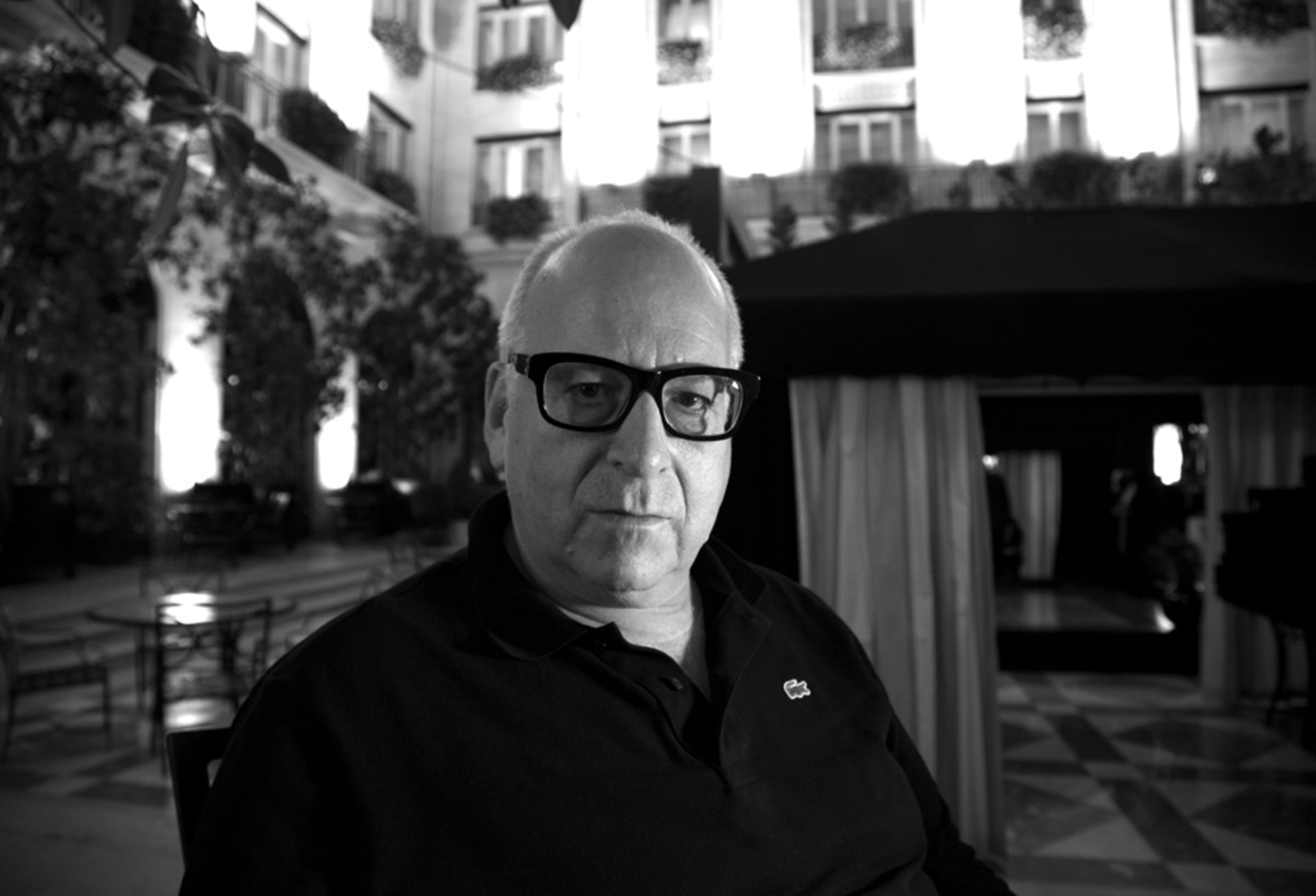
72 hours: DMGDR – Part six, Daniel Miller
Depeche Mode have built up one of the most musically influential and obsessive fan bases in the world, particularly in Berlin and the former East Germany. Daniel Miller has a special connection to Berlin, having recorded and produced various Mute acts here throughout the ’80s and ’90s. An early champion of krautrock, NDW, and the electronic avant-garde, Miller sees the German capital as a second home. This is the concluding installment in a six-part series of conversations with the fans. Click here for more.
Daniel Miller – Music producer and founder of Mute Records
Depeche Mode was incredibly excited to explore their popularity behind the Iron Curtain, because they knew about the hunger for songs and facts and information about them. I didn’t go with them to East Berlin, but I went to the Hungary and Czechoslovakia shows. The reaction was unbelievable, completely different than in the UK. Of course, there were very few Western groups who actually made the journey into the East, so the rarity value of the band added immense enthusiasm. The level of Eastern European obsession is hard to describe really. In Hungary, there was almost a Depeche Mode gang culture. These were real cults. The Hungarians were one of the first to have parties based entirely around the band, with Dave and Martin and Fletch impersonators doing their thing.
Most bands thought it simply wasn’t worth doing promotion behind the Iron Curtain, because in the East they essentially had no consumer culture and practically no albums in the market. For us, it was always just a short trip away because between 1983 and 1986, we spent a lot of time in West Berlin making albums. Martin was also dating a German girl at the time and they had moved in together. The city’s atmosphere was very different to England and the whole Berlin lifestyle had an influence on the music. In England, there was nothing to do after 11 pm. You couldn’t go out. Things were dead. In Berlin you could do whatever you wanted at whatever time you wanted. I had a number of artist friends in Berlin—the Neubauten, Nick Cave, Thomas Fehlmann, Gudrun [Gut]—so I always enjoyed hanging out. But my time in the city was more work-oriented, to be honest. I was co-producing the band in the studio. We did get into sampling very early with Construction Time Again in 1983—of course, not from records but rather found sounds and various Indian or African instruments or other stuff they’d collected. We’d end up pitching them up or down and fucking around with them quite a bit. It was part of a constant search for new sounds. There’s the myth that the band had used a sample from the Einstürzende Neubauten because there was supposedly two or three seconds of Neubauten samples that had been left in Gareth Jones’ sampler, but that’s total nonsense. Of course, you can’t deny the Neubauten’s influence at the time.
For me, Depeche Mode is unique, as are their fans, which some people know from Jeremy Deller and Nick Abrahams’ film The Posters Came From The Walls. Personally, I really liked the film, but I know the band weren’t too sure. I don’t think they liked being confronted with the reality they had created. But I think the film shows how much power the band had in the East especially. Depeche Mode gave people an outlet away from people’s daily routine. They’ve always been an outsider band. There were lots of outsiders and kids who were bullied that got strength from Depeche Mode. And that’s a really moving thing. The band is extremely down to earth and they appreciate normalcy, even if they don’t always have it.
I remember an interview in the very beginning when a journalist asked them, “If you could be any other band, which would you be?” And one of them, I don’t remember which, said: “Pink Floyd! They’re incredibly famous, but nobody knows what they look like. They can just walk around and have normal lives!” These days, the group tries to lead normal lives, even if it’s not always possible. In Berlin, things were pretty relaxed, even if fans did wait outside the studio and rename the street “Depeche Mode Straße” when we were in town. ~
This text first appeared in Electronic Beats Magazine N° 32 (Winter 2012). Photo: Elena Panouli
Published February 08, 2013. Words by A.J. Samuels & Max Dax.
